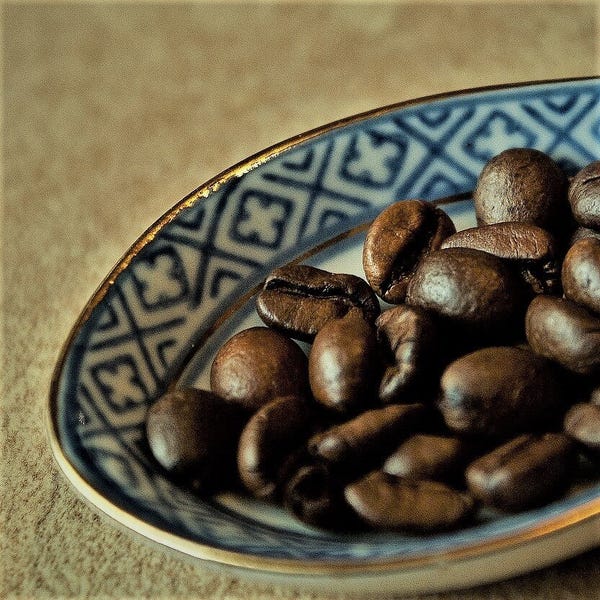What did Baba Budan hide in his beard? | #257
+ the first Indian film to have multiple endings 🧐
Mitron,
In the 17th century Baba Budan, a Sufi saint was on a pilgrimage to Mecca where he encountered coffee in the Yemeni port city of Mocha. Despite Arabia's strict monopoly on coffee trade—where exporting live coffee seeds was punishable by death—Baba Budan courageously smuggled seven coffee beans back to India. According to legend, he concealed these precious seeds in his thick beard, and some accounts suggest he also hid them in his walking stick.
Upon returning to India, Baba Budan planted these seven beans in the hills of what was then Mysore (modern-day Chikmagalur), Karnataka. The region's elevation and climate proved remarkably similar to coffee's native Ethiopian highlands, and the plants flourished. These seven beans became the foundation of India's entire coffee industry, and the Western Ghats where he settled were later named Bababudangiri in his honor.
This week we take a look at India's tryst with coffee. You can read about coffee and have it too.
Things we learnt this week 🤓
Question: Where was the Kent variety of coffee created?
If your answer to this question is Mysore, then put your hands together, grab a Kent coffee and celebrate. One of the first Arabica varieties in India, Kent was named after L.P. Kent, an Englishman who first planted this variety in Mysore in the 1920s. Developed through a selection program to resist coffee leaf disease, Kent coffee tends to have spicy notes mingling with sharp acidity and a fruity flavor profile that appeals to those who enjoy lively flavors. That lively flavor profile made Kent popular not just at home but in export markets. Kent remains something of a legend among a new generation of specialty roasters and third-wave aficionados - Kent mocha me crazy!
Degree coffee is a cherished form of South Indian filter coffee. The term "degree" has several fascinating origin stories. One explanation suggests it derives from the use of a lactometer (or "degree meter") to measure milk purity, as high-quality cow's milk was essential to authentic degree coffee. Another theory proposes that "degree" evolved from the local pronunciation of "chicory" (pronounced as "tikeri"), which gradually transformed to "digory" and finally "degree".
The brewing process for a degree coffee involves a special South Indian filter called a "dabara set". Coffee powder is placed in the upper compartment with an "umbrella" gently pressing it down before hot water is poured over. The water slowly drips through the grounds, creating a rich decoction that collects in the lower chamber. To prepare the final beverage, sugar is added to the decoction, followed by boiling hot milk. The mixture is then poured between vessels to create a frothy texture before being served in traditional brass sets. Only a few can truly perfect this process - i.e you need a degree in coffee for degree coffee.
Monsooned Malabar is one of India’s most distinctive and storied coffees. The name refers to the rain-soaked coast of Karnataka and Kerala, and the unique aging that sets this coffee apart. Its origins date back to the era of wooden sailing ships when coffee beans shipped from India to Europe would spend months at sea, exposed to humidity and salty winds. By the time they arrived, the beans had swollen, turned pale gold, and developed a mellow, earthy flavor that European drinkers came to love. Today, this effect is recreated on land. After harvesting, the beans are spread in open warehouses along the Malabar coast, where they are exposed to the monsoon winds and rains for several weeks. The beans absorb moisture from the air, swell in size, and lose much of their acidity, resulting in a cup that’s smooth, heavy-bodied, and rich with notes of spice, nuts, and earth. This unique process has earned a Geographical Indication (GI) status, protecting its identity worldwide. Now go get a cuppa monsooner rather than later.
From IWTK, with love 💌
Housefull 5 isn’t the first Indian film to have multiple endings. Mohanlal Mammooty did it way before. Know more here.
Mira Nair’s son could be the next mayor of New York. Check this hilarious campaign video.
Only In India 🇮🇳
There is enough DNA evidence here
💟 IWTK










Thank you for this newsletter !!! Gives me joy to know